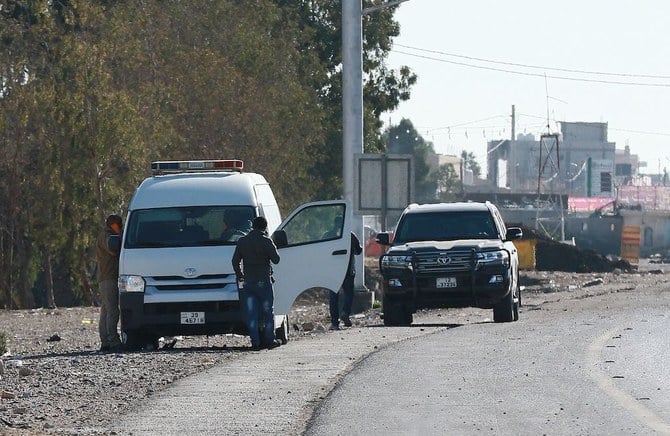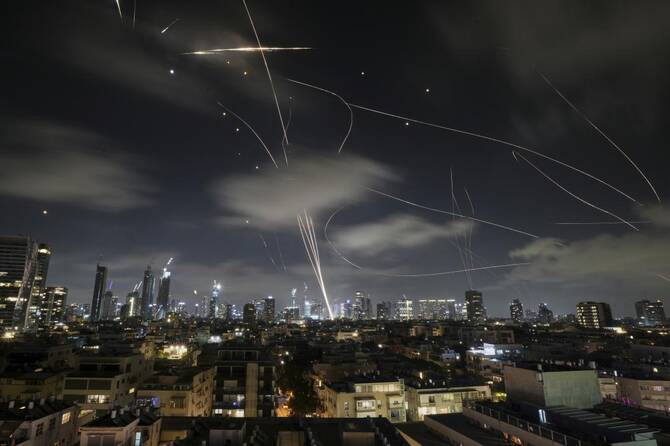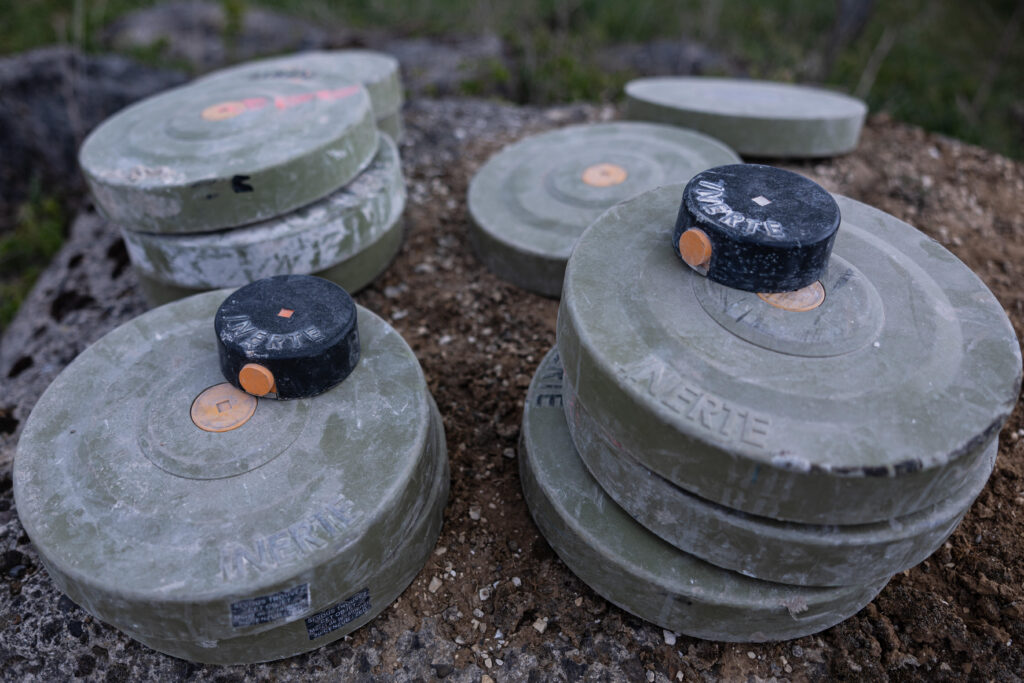AMMAN: Three Jordanian police officers were killed and five others injured in a raid on the hideout of the suspected killers of a senior enforcement officer in the southern city of Maan.
In a statement, Jordan’s Public Security Directorate said on Monday that one of the suspects, a “militant who embraced the takfiri radical ideology,” was killed during the operation and nine others were arrested.
The PSD added that the suspects, “included four brothers of the killed terrorist who fired at a security force, three sons of one of the suspects, and two others who were in the hiding place.”
The suspects were found in possession of automatic weapons and a large amount of ammunition, the PSD statement said.
And it named the officers that died as Capt. Ghaith Rahahleh, Second Lt. Mutaz Najada, and Corp. Ibrahim Shaqarin.
Crown Prince Hussein attended the funeral of Rahahleh in Amman’s Suwaileh neighborhood. The other two officers were also laid to rest on Monday in their hometowns of Madaba and Tafileh.
The southern cities of Maan, Tafileh, and Karak have seen sporadic strikes and sit-ins by truck drivers protesting increased fuel prices. Police said that some of the strikes turned violent with protesters attacking public buildings and security forces.
The PSD said that Col. Abdul Razzaq Al-Dalabeeh, deputy police chief of Maan, had died after being shot in a clash with protesters in Maan’s Al-Husseiniya district on Thursday.
Visiting the condolence house of Al-Dalabeeh’s family on Friday, King Abdullah vowed to bring the perpetrators to justice, stressing that violence against the state, vandalism of public property, and violating the rights of Jordanians would be dealt with firmly.
He said: “We will not tolerate violence against our security personnel, who work day and night to protect Jordan and Jordanians.”
At a press conference following Al-Dalabeeh’s funeral on Friday, the government said security agencies would maintain a “strict approach” to dealing with rioting and violence, while respecting people’s right to demonstrate peacefully.
The PSD said that 44 people accused of involvement in demonstrations against rising fuel prices were arrested over the weekend.
Truck drivers in Maan began their protest by organizing a sit-in on the desert highway linking Amman and the port city of Aqaba, before colleagues from other regions, including Amman and Mafraq on the border with Iraq, also joined in.
In a move described as “civil disobedience,” merchants from Maan, Tafileh, and Karak closed their shops in a show of support for the drivers.
Some regions witnessed rioting, road blockades, and tire burnings prompting the intervention of security forces.
On Saturday night, truck drivers in Maan signed an agreement with lawmakers to end a 17-day strike that has seen major disruption to traffic and supply chains.
Under the deal, signed by six MPs, the drivers agreed to evacuate main highways and go back to work under a pledge that their demands would be met.
The workers — mostly from Maan, Tafileh, and Karak — have called for lower fuel prices and the cancellation of a special tax on fuel derivatives.
The price of fuel, especially diesel and kerosene, has soared in Jordan over recent months, with the government blaming international markets. It also said it had generated around 1 billion Jordanian dinars ($1.4 billion) from the tax on fuel derivatives.
During a lower house session on fuel prices, Prime Minister Bisher Khasawneh said: “The government does not have the luxury to subsidize fuel derivatives.
“Lowering the fuel prices would mean an additional cost of 550 million Jordanian dinars to the budget. The government does not have this money.”






















